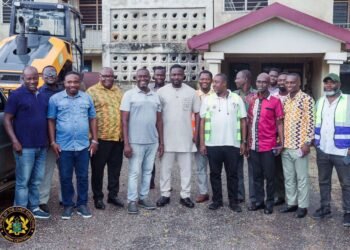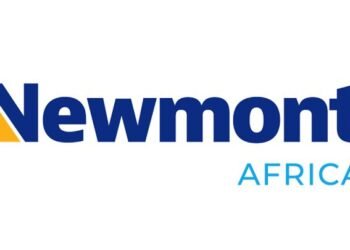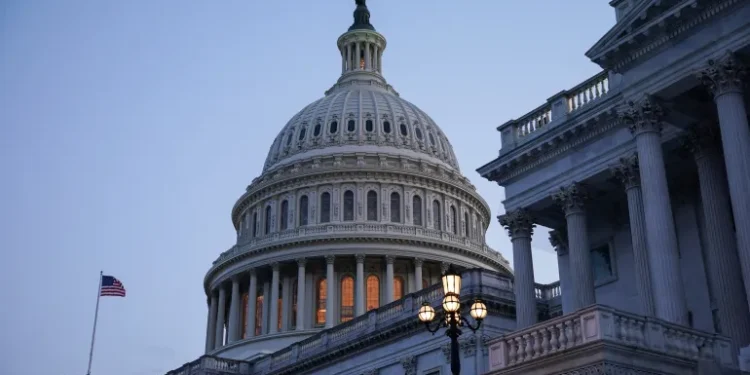The Director-General of the National Development Planning Commission (NDPC), Dr. Audrey Smock Amoah, has called for a new era of fairness, transparency, and sustainability in the governance of West Africa’s natural resources.
She said the time had come for African nations to transform the management of their abundant mineral wealth into a model of equity and accountability that benefits all citizens rather than a privileged few.
Delivering the keynote address at the High-Level West Africa Conference on Equity in Extraction, held in Accra, Dr. Amoah underscored that Africa’s vast mineral endowment must serve as a foundation for sustainable and inclusive development.
“The irony remains that those living atop resource-rich lands are often the most marginalised, bearing the brunt of environmental destruction while receiving the least benefit.”
Dr. Audrey Smock Amoah, Director-General of NDPC
Dr. Amoah noted that West Africa is home to vast deposits of gold, bauxite, manganese, diamonds, and emerging critical minerals such as lithium, cobalt, and nickel.
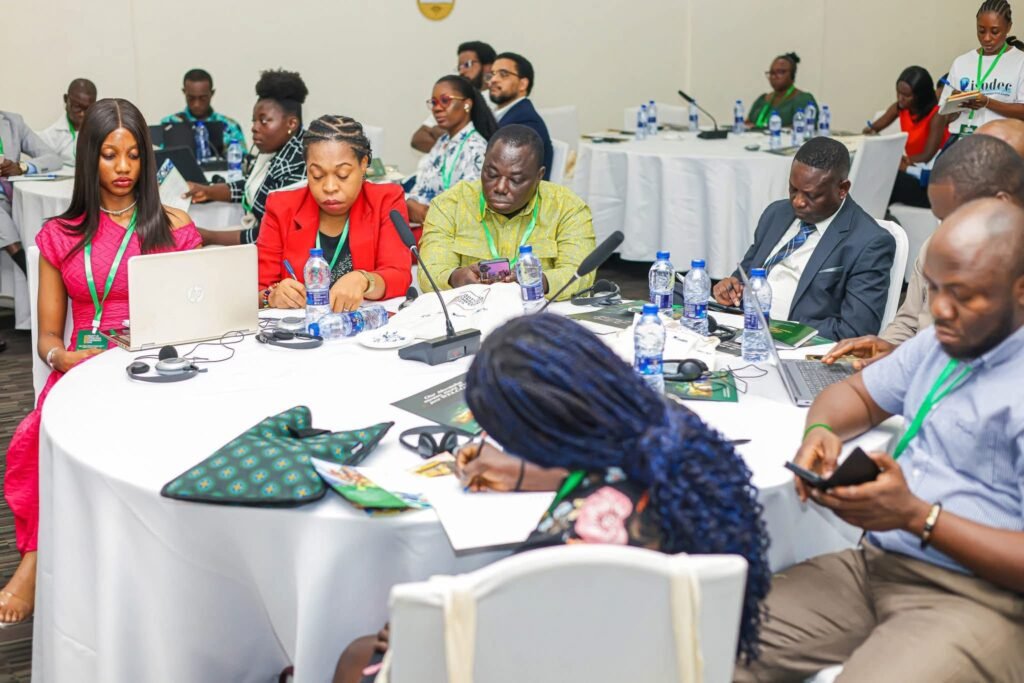
Yet, citing data from the African Development Bank and the World Bank, she observed that while these resources contribute significantly to regional GDP and export earnings, the wealth they generate is still unevenly distributed.
Drawing from history, Dr. Amoah referenced former President John Dramani Mahama’s 2015 address at the Africa Mining Vision Conference in Addis Ababa, where he urged that Africa’s resources must become a blessing, not a curse.
She reiterated, “We must add value, create jobs, and ensure that our people benefit directly from the wealth beneath our soil,” noting that the message remains as relevant today as it was a decade ago.
According to her, research by the United Nations Development Programme (UNDP) shows that only 15 to 20 percent of mining revenues remain in local economies. This imbalance, she said, perpetuates inequality and weakens local governance structures.
Cost of Poor Regulation
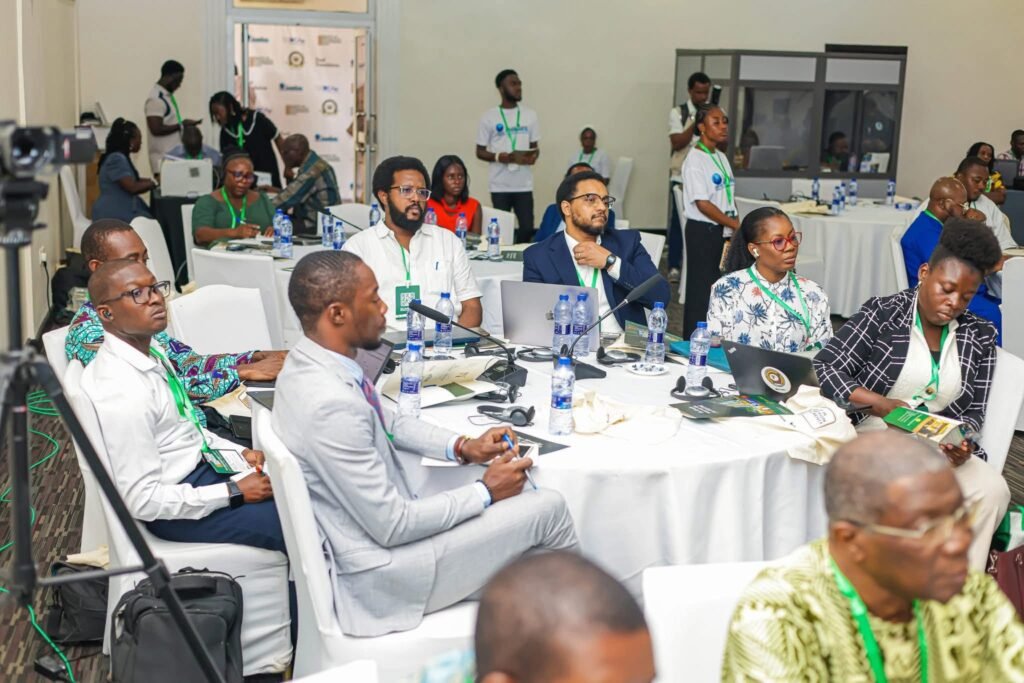
Using Ghana’s experience with illegal small-scale mining, or galamsey, Dr. Amoah illustrated the devastating impact of poor resource governance.
“Our rivers are turning toxic, farmlands are being destroyed, and food crops are contaminated with mercury and other poisonous chemicals.
“These environmental and social costs deepen poverty, erode trust in institutions, and widen rural–urban inequality.”
Dr. Audrey Smock Amoah, Director-General of NDPC
She stressed that addressing these challenges requires more than economic reform, it demands moral responsibility and institutional integrity.
Dr. Amoah emphasized that true equity means ensuring that natural resource revenues are reinvested in human development and infrastructure.
“It means reinvesting revenues from our natural resources back into society, into schools, hospitals, roads, and decent jobs for our youth. “It means ensuring that women, young people, and local communities are not bystanders but active participants in the extractive economy, from exploration to decision-making and benefit-sharing.”
Dr. Audrey Smock Amoah, Director-General of NDPC
She called for stronger legal frameworks, transparent institutions, and accountability mechanisms to ensure that future generations inherit a continent that values both its environment and its people.
“We must think not just of today’s profits but of tomorrow’s survival.
“Environmental stewardship and intergenerational justice must guide our resource governance.”
Dr. Audrey Smock Amoah, Director-General of NDPC
Dr. Amoah also highlighted the importance of regional cooperation in managing critical minerals, noting that value addition, transparency, and sustainable extraction must be pursued through collective action among West African nations.
Industry Perspectives on Revenue and Inequality
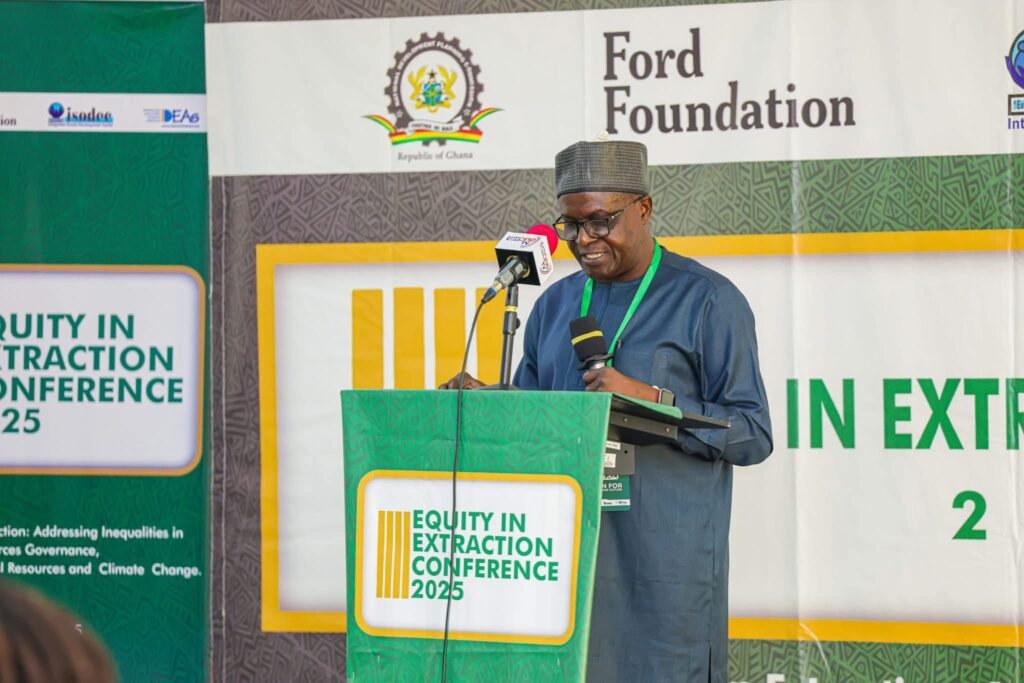
Adding his voice to the discussions, Mr. Emmanuel Kuyole, Programme Officer at the Ford Foundation, underscored the economic volatility and inequality challenges linked to extractive industries.
He explained that commodity prices, especially for minerals, are often unstable and subject to long-term decline, which makes it difficult for governments and communities to rely on extraction for consistent revenue.
“This price volatility undermines revenue generation, thereby limiting the potential of extractive resources to serve as reliable tools for development.”
Mr. Emmanuel Kuyole, Programme Officer at the Ford Foundation
He further noted that extractive industries, due to their capital-intensive nature, often exacerbate inequality, concentrating wealth and benefits among a small elite while leaving communities impoverished.
“When revenues are invested in health, education, and other social services, they can have a transformative impact on inequality.
“However, this requires strong governance systems and a firm commitment to transparency and accountability.
Mr. Emmanuel Kuyole, Programme Officer at the Ford Foundation
The three-day conference, jointly organised by the Integrated Social Development Centre (ISODEC) and International Development Economics Associates (IDEAs) in partnership with the NDPC, brought together policymakers, civil society organisations, academics, private sector leaders, and development practitioners.
Participants explored strategies for equitable benefit-sharing, value addition in resource extraction, and mechanisms for environmental and social protection in the extractive sector.
As discussions unfolded, one theme stood out, Africa’s resource wealth holds immense potential, but only through equitable management can it truly drive transformation.
READ ALSO: BoG’s $1.15bn FX Injection Sparks Clash with IMF and World Bank Over Cedi Stabilization





